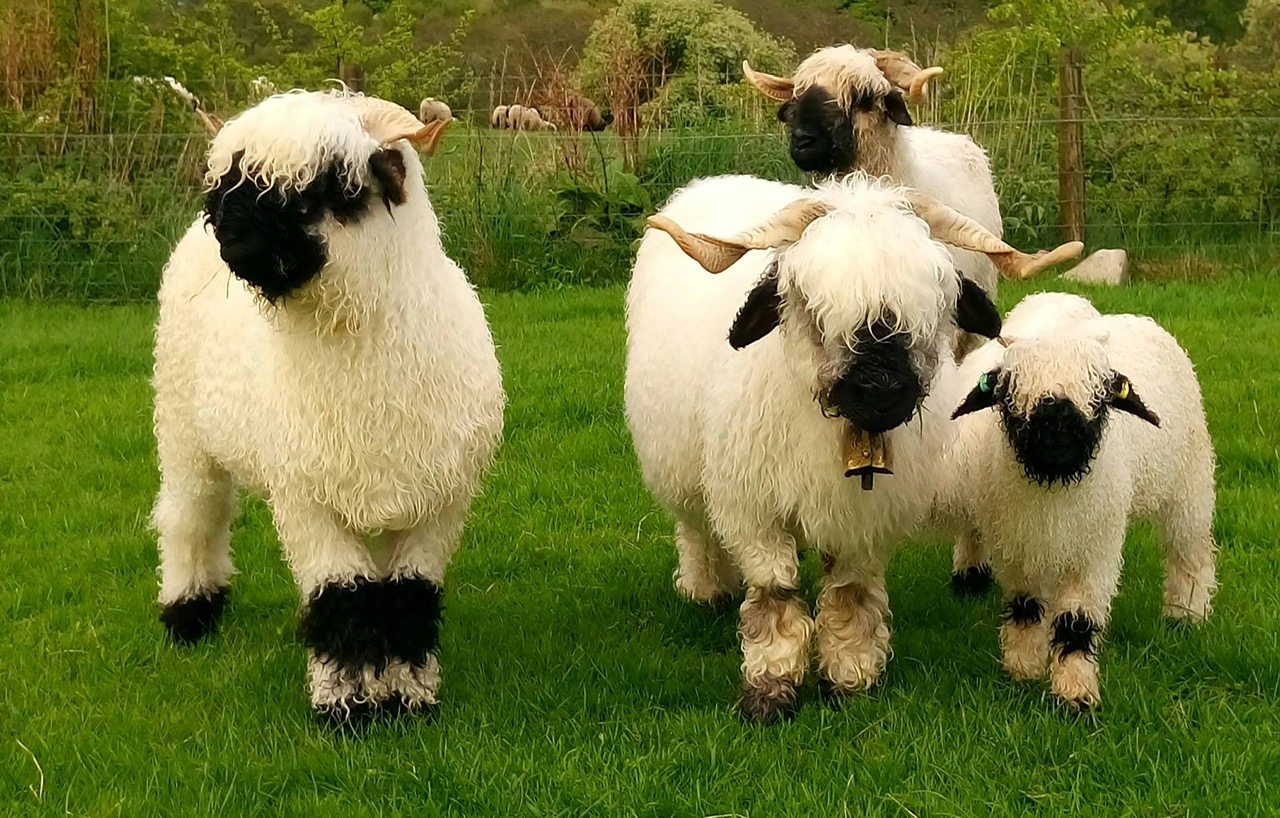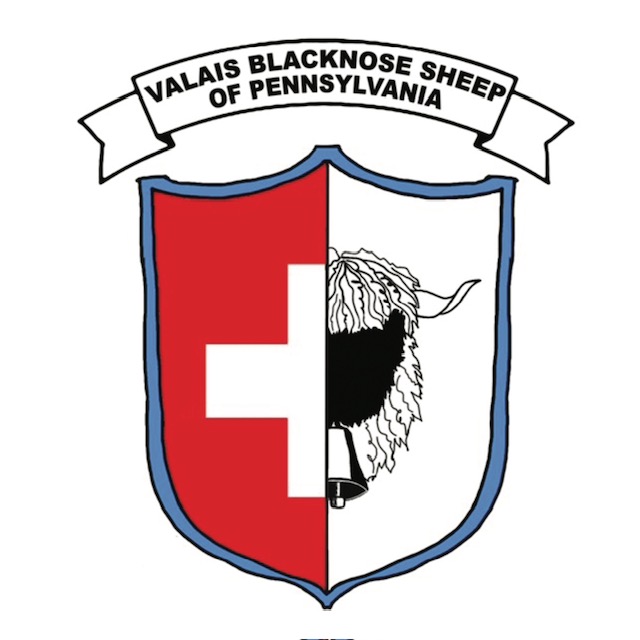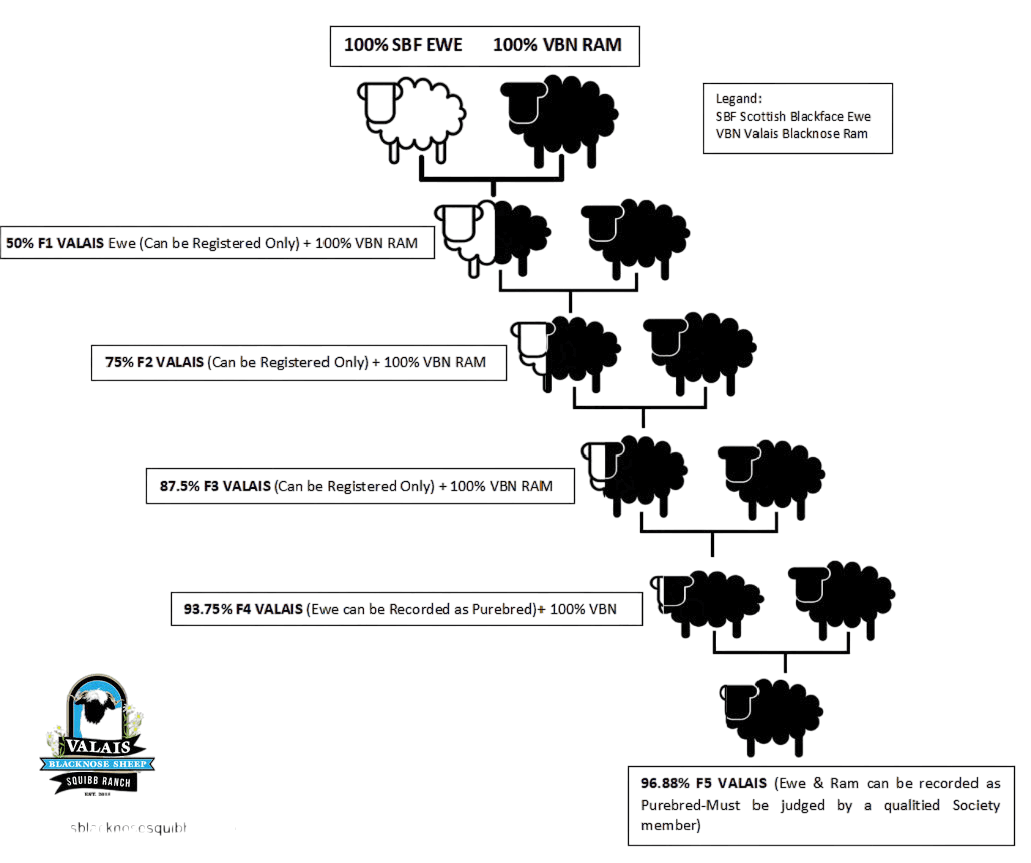Valais Blacknose Sheep
The World’s Cutest Sheep were once only found in remote villages in the mountains of Switzerland. Our goal at SPOOKY NOOK FARM is to change that fact. Our breeding program now brings them directly to you!
We are excited about our breeding program for the Valais Blacknose Sheep. Not only are they the cutest sheep in the world, but also the friendliest! This iconic breed originates from the steepest slopes of the Swiss mountains. Live sheep cannot be imported into the United States, so we started our breeding program using artificial insemination, embryonic transfer, and eventually natural breeding.
It has been quite the journey so far, and we are very privileged to have had some of the first purebreds born in Pennsylvania. The docile personalities are much like a dog, and they are extremely affectionate. They make wonderful pets for anyone who loves to cuddle! They can walk on leashes, and they follow their shepherds.
Our sheep are available for sale as well as breeding. Currently we have semen
available for artificial insemination.
Read on to discover more about these amazing sheep and you’ll see why we love them!

The Cutest Sheep in the World
The Valais Blacknose Sheep are considered not only to be one of the friendliest breed, but have gained the recognition and title of “The World’s Cutest Sheep!” Their amazing images have taken social media and the world by storm. With long white spirals of shaggy wool and adorable blackfaces along with an extra sociable personality – it’s easy to see why millions have fallen in love with the Valais Blacknose!
Increasing public demand to learn more about this rare breed and obtain these gentle giants is documented in countless media articles.
Learn more and read below:

The History of Valais
The Valais Blacknose Sheep, German: Walliser Schwarznasenschaf originated back in the 15th century from the Valais Canton region of Switzerland, but were not recognized as a breed until 1962. They are considered a rare breed of sheep. The Valais Blacknose actually were declining in numbers early in the 20th century, but most recently – with the assistance of social media have seen quite a resurgence. Once found only in remote villages of Switzerland, they have now expanded to Germany, the United Kingdom and New Zealand.
Valais Breeding in the United States
Valais Blacknose Sheep in the U.S.
Worldwide Valais sheep numbers are estimated under 19,000, leading them to be categorized formally as a rare heritage breed of sheep. European laws do not allow you to bring sheep into the United States, however in late 2016, the United States was granted approval to allow the importation of pure-bred semen to be shipped in for elite special breed-up programs, like ours! In late 2020, we were also allowed to bring embryos from donor rams and ewes into the United States to be implanted into our specially selected foundation ewes. This process is called EMBRYONIC TRANSFER and would be similar to the in vitro process for human beings.
Breeding Up the Valais Blacknose
Carefully selected foundation ewes are artificially inseminated with the imported pure-bred semen from superior Valais Blacknose rams in Europe and from the herd in New Zealand. Future generations of Valais cross are then born, and when matured, bred up again year-over-year until they are at least 97% pure Valais and meet the criteria for full breed registration!
We are so proud to have the first born 100% Valais Blacknose Sheep born in Pennsylvania via embryonic transfer, and we will continue to be a part of the breed up program so America can have the pleasure of seeing and owning this wonderful, friendly breed of sheep!
F1-50% VBN
F2-75% VBN
F3- 87.5% VBN
F4-93.75 % VBN
F4 -96.88% VBN
Valais Breed Description
The Valais, as they are often referred to, have a simply stunning and unique appearance. They are a long-wool breed of sheep that feature beautiful white curly wool with a distinct black face and nose – a look that you simply can’t help but to love! Black patches are found on the ears, nose, hocks and knee caps, with a black tail spot marking on ewes only.
Eventually both female and male sheep grow amazing spiral or helical-shaped horns.

